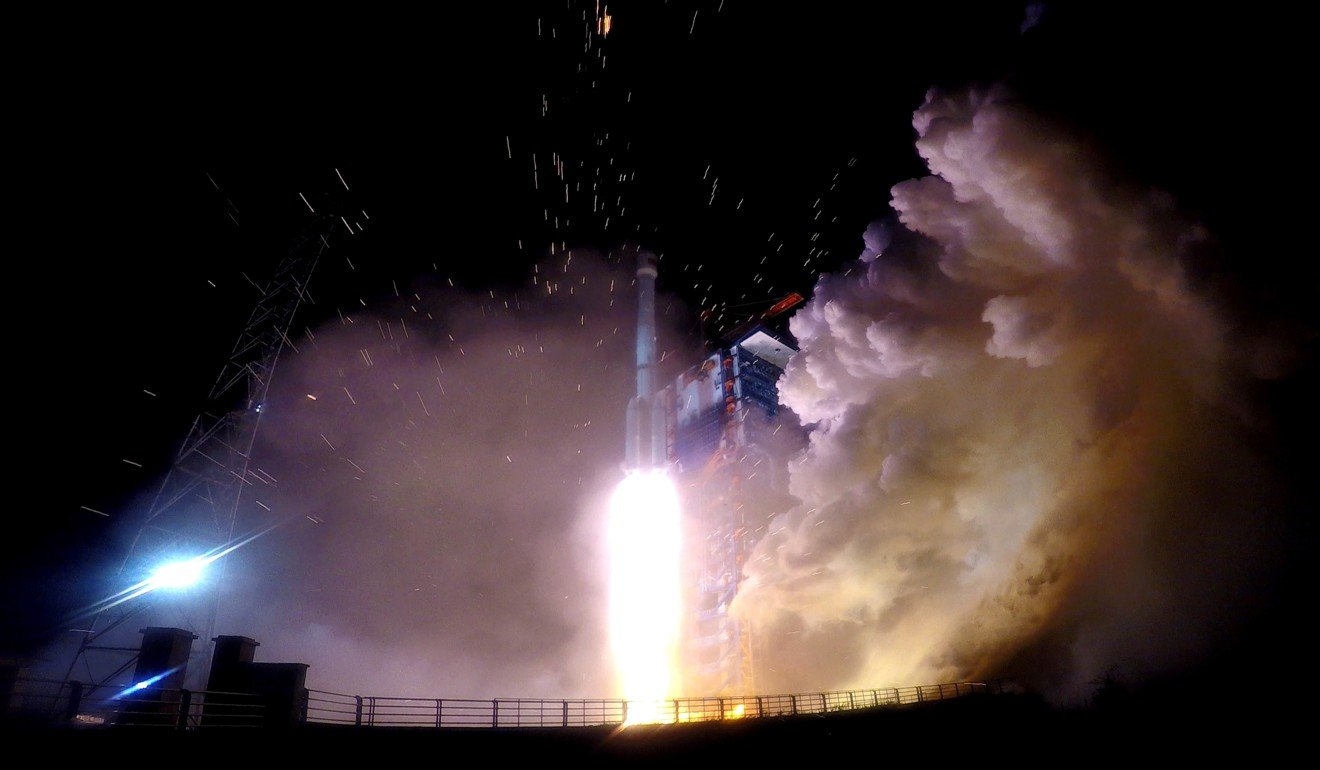
China adds new satellite to its Beidou network that aims to rival US global positioning system
- There are now 20 satellites in orbit for the navigation system, which is expected to be completed next year
- BDS began offering a basic service in December, with priority for the Asia-Pacific region and countries along the belt and road route

China launched a 20th satellite for its global navigation system late on Saturday, taking another step towards completing a vast network it hopes will eventually rival the global positioning system (GPS) run by the United States.
After it was launched close to midnight from the Xichang centre in southwest China, the latest addition to the Beidou constellation successfully entered inclined geosynchronous satellite orbit, state news agency Xinhua reported on Sunday.
It is the first of three satellites planned for that orbit. Beidou will also have 27 satellites in medium earth orbit and five in geostationary orbit when it is completed next year.
The newest satellite was the first to be sent up this year and is expected to be followed by another seven to nine by the end of 2019.
China has been developing and operating the Beidou navigation system, or BDS, since 1994. With both military and civilian applications, the system is aimed at challenging the dominance of GPS in the global positioning market.

BDS began offering a basic global service in December, with priority for the Asia-Pacific region and countries along the route of the “Belt and Road Initiative” – Beijing’s sprawling trade and infrastructure strategy spanning Asia, Africa, Europe and beyond.
Beijing has been promoting BDS to countries taking part in the initiative by offering additional services and other incentives if they sign up for the system. According to a Chinese government white paper on Beidou from 2016, the system was intended to primarily serve the interests of belt and road countries.
Meanwhile, the government has ordered all buses, heavy trucks and fishing boats in China to install BDS for real-time monitoring and tracking, and there are already 70 million Beidou-linked chips in use in the country.
At present, BDS cannot match GPS in terms of positioning accuracy. BDS accuracy is to within 10 metres globally and 5 metres in the Asia-Pacific region, while the positioning accuracy of GPS is 30cm. But with more satellites in its network, the Beidou system is expected to improve, and it ultimately aims to have positioning accuracy to within 10cm for military use.

Last month its operator, the National Administration of Global Navigation Satellite Systems and Applications, said that with up to 10 new satellites sent into orbit this year, the network in medium earth orbit would be complete.
There are 19 Beidou satellites operating in medium earth orbit at the moment, while GPS has 24 satellites in that orbit but none in geostationary or inclined geosynchronous satellite orbit.
The newest satellite in the Beidou network was put into orbit by a Long March 3B rocket during its 100th launch, according to Xinhua.